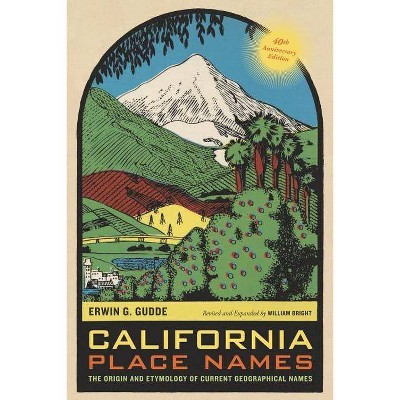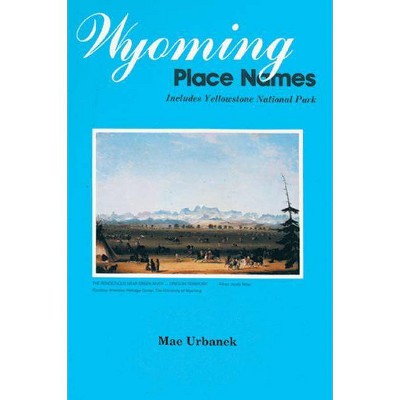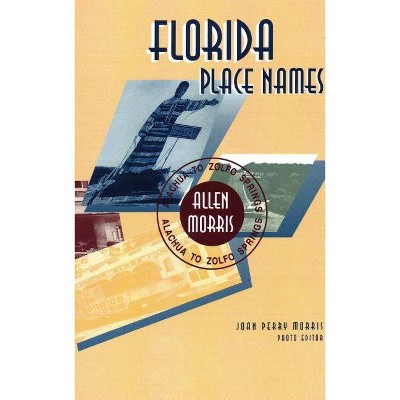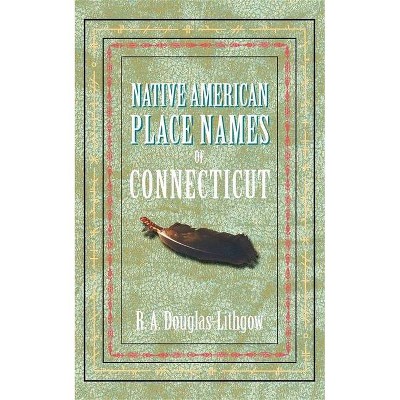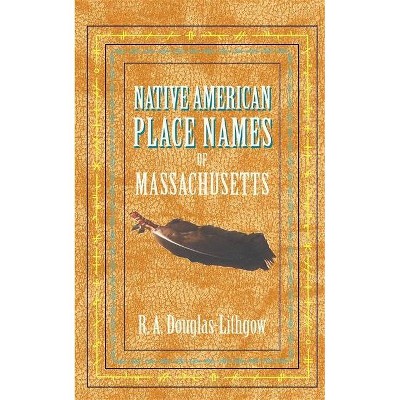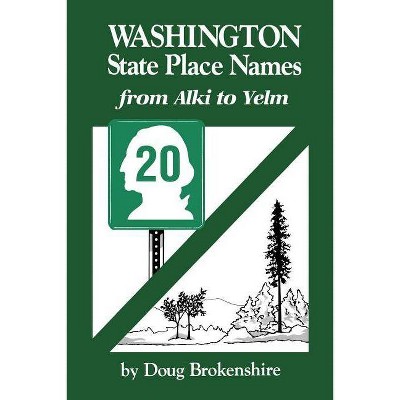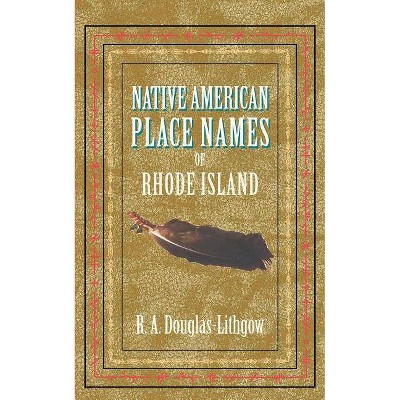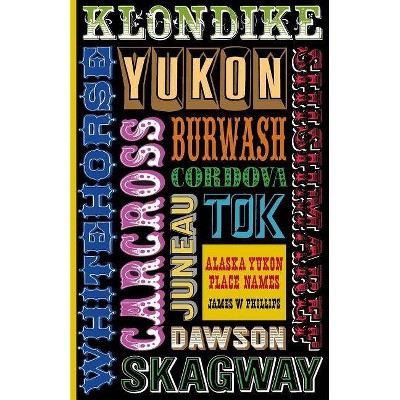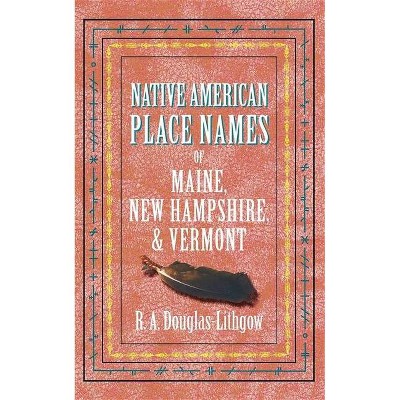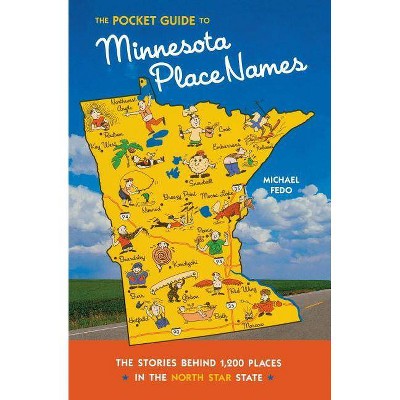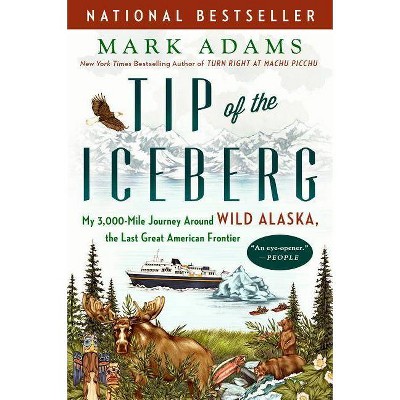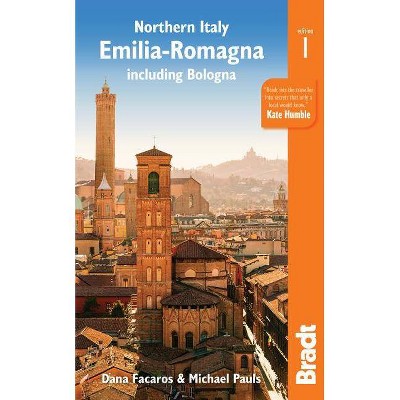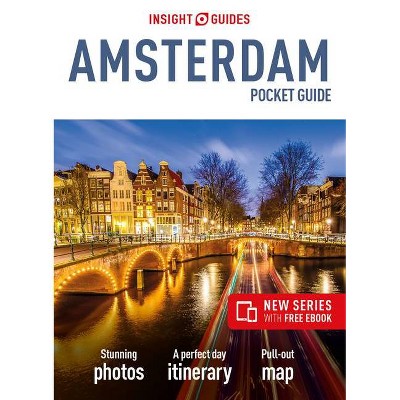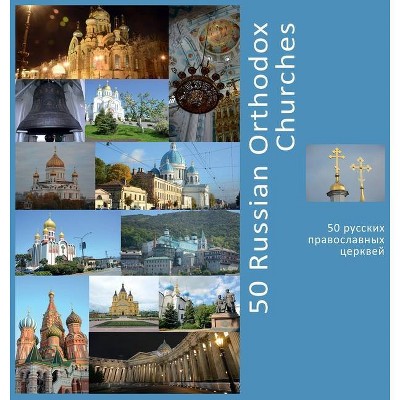1500 California Place Names - 4th Edition,Abridged by William Bright (Paperback)
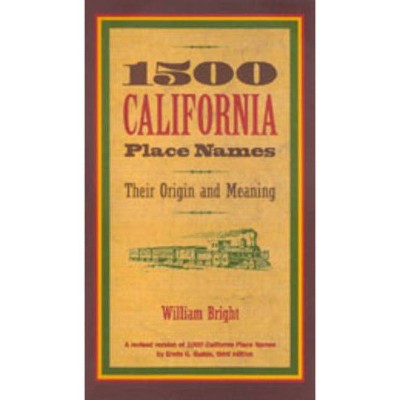
Similar Products
Products of same category from the store
AllProduct info
<p/><br></br><p><b> About the Book </b></p></br></br>This handbook focuses on two sorts of names: those that are well-known as destinations or as geographical features of the state, and those that demand attention because of their problematic origins, whether Spanish, such as Bodega and Chamisal, or Native American, like Aguanga and Siskiyou. Map.<p/><br></br><p><b> Book Synopsis </b></p></br></br>This is the new "pocket" version of the classic <i>California Place Names</i>, first published by California in 1949. Erwin G. Gudde's monumental work, which went through several editions during its author's lifetime, has now been released in an expanded and updated edition by William Bright. The abridged version, originally called <i>1000 California Place Names</i>, has grown to a dynamic <i>1500 California Place Names</i> in Bright's hands. Those who have used and enjoyed <i>1000 California Place Names</i> through the decades will be glad to know that <i>1500 California Place Names</i> is not only bigger but better. This handbook focuses on two sorts of names: those that are well-known as destinations or geographical features of the state, such as La Jolla, Tahoe, and Alcatraz, and those that demand attention because of their problematic origins, whether Spanish like Bodega and Chamisal or Native American like Aguanga and Siskiyou.<br /><br />Names of the major Indian tribes of California are included, since some of them have been directly adapted as place names and others have been the source of a variety of names. Bright incorporates his own recent research and that of other linguists and local historians, giving us a much deeper appreciation of the tangled ancestry many California names embody. Featuring phonetic pronunciations for all the Golden State's tongue-twisting names, this is in effect a brand new book, indispensable to California residents and visitors alike.<p/><br></br><p><b> From the Back Cover </b></p></br></br>This book traces the origins of place names such as California, named after the mythical black queen Califia, and the town of Peanut, named by a postmaster who was fond of this snack. From the exotic to the prosaic, from border to border, from A to Z, 1500 California Place Names explores the heritage of the Indians, explorers, missionaries, settlers, and surveyors who took part in naming the state's cities, rivers, lakes, peaks, valleys, and other geographical features. This revised, expanded handbook includes the names of the major Indian tribes of California, many of them directly or indirectly the source of place names. William Bright incorporates his own recent research and that of other linguists and local historians to give us a deeper appreciation of the tangled ancestry of many California names. Featuring phonetic pronunciations for tongue-twisting locales, this compact guide should accompany anyone who travels the highways, trails, or waterways of the Golden State.<p/><br></br><p><b> Review Quotes </b></p></br></br><br>"The definitive guide to the etymology of California's geographical names . . . updates the state's poetic vocabulary and gives compelling proof that place names are not the fixed road-map landmarks that so many assume them to be."--"Santa Cruz Sentinel<br><p/><br></br><p><b> About the Author </b></p></br></br><b>William Bright</b> is Professor Adjoint in Linguistics at the University of Colorado, Boulder, and author of numerous books including <i>A Coyote Reader</i> (California, 1993). He edited the four-volume <i>International Encyclopedia of Linguistics</i> (1991), as well as the revised, unabridged <i>California Place Names</i> (California, 1998).
Price History
Price Archive shows prices from various stores, lets you see history and find the cheapest. There is no actual sale on the website. For all support, inquiry and suggestion messagescommunication@pricearchive.us
